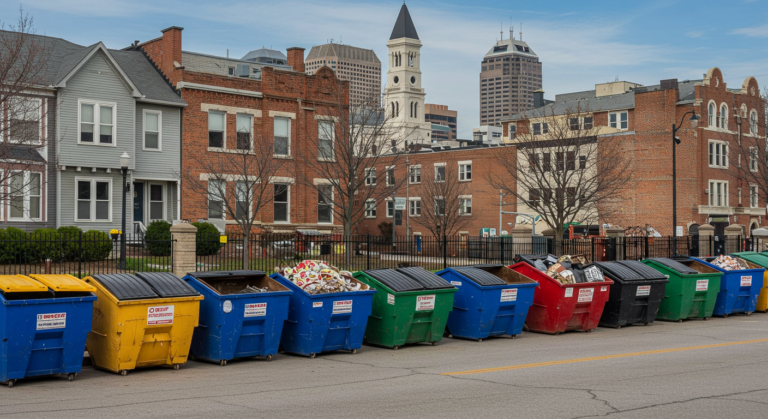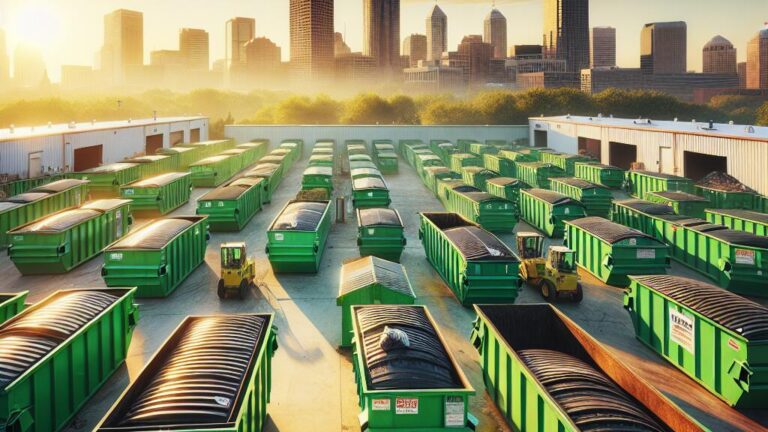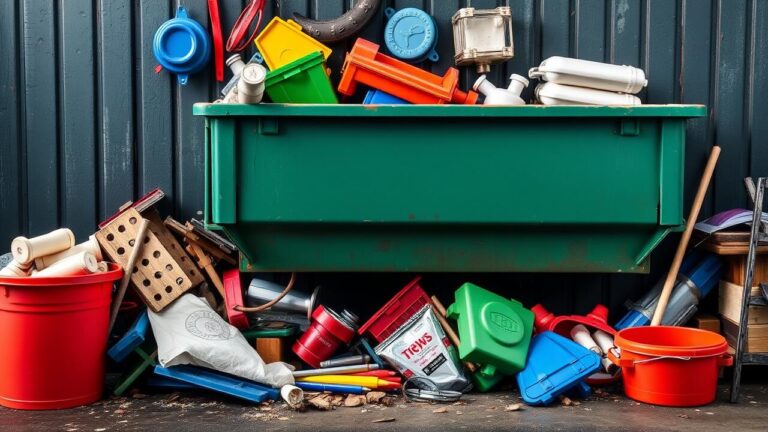History of Roll-off Dumpsters in Waste Management
Environmental Regulations and Their Influence
The evolution of environmental regulations has played a crucial role in shaping waste management practices. With increased awareness of environmental issues, government agencies have implemented stricter frameworks to govern waste disposal methods. These regulations aim to mitigate harm to the environment and ensure that waste is managed sustainably. As a result, waste management companies have had to adapt their operations to comply with these requirements, often leading to the adoption of roll-off dumpsters as a more efficient means of waste collection.
Compliance with environmental standards often influences the design and availability of roll-off dumpsters. Manufacturers have developed specialized containers that adhere to regulations regarding material types and disposal processes. Enhanced features, such as airtight seals and materials that reduce leakage, are becoming increasingly common. Businesses choosing to use roll-off dumpsters can benefit from these innovations, ensuring that their waste management practices align with legal expectations while minimizing their environmental footprints.
Understanding Compliance Requirements
Compliance with environmental regulations is crucial for businesses involved in waste management, especially those utilizing roll-off dumpsters. These regulations dictate the types of materials that can be disposed of in these containers. Furthermore, companies must adhere to local, state, and federal guidelines regarding landfill operations and hazardous waste handling. Failure to comply can lead to legal penalties, increased costs, and a damaged reputation.
To ensure compliance, businesses must remain informed about evolving legislation and best practices. Regular training programs for employees can foster a culture of awareness around waste management regulations. Additionally, collaborating with experienced waste management providers can offer insights into legal requirements and help streamline operations. Such proactive measures contribute to maintaining standards and promoting environmental sustainability.
The Economic Impact of Rolloff Dumpsters
Roll-off dumpsters have significantly influenced the economic landscape of waste management by providing businesses with an efficient disposal solution. The ability to rent these containers not only reduces the need for companies to invest in their waste management infrastructure but also streamlines the process of debris removal. This has proven vital for industries such as construction and renovation, where managing large volumes of materials is crucial for maintaining project timelines and budgets.
In addition to enhancing operational efficiency, roll-off dumpsters can lead to substantial cost savings. By offering a range of sizes, these dumpsters allow businesses to select a solution tailored to their specific needs, thus minimizing wasted space and expenses. Furthermore, the competitive pricing among service providers encourages efficiency and innovation within the market, benefiting both businesses and consumers in the long run.
CostEffectiveness for Businesses
Businesses increasingly recognize the value of roll-off dumpsters as a practical solution for waste management. These containers come in various sizes, allowing companies to select the most appropriate option based on their unique needs. This flexibility helps organizations manage their waste efficiently while minimizing costs associated with disposal. Instead of multiple trips to a landfill, a single container can accommodate substantial debris, resulting in significant savings on transportation expenses and labor.
Furthermore, the use of roll-off dumpsters can enhance productivity in construction and renovation projects. By centralizing waste collection, workers can focus on their primary tasks instead of spending time dealing with clutter and trash removal. Many waste management companies offer competitive pricing for rental services, making it financially feasible for small to medium-sized enterprises. This cost-effective approach allows businesses to allocate resources more effectively while maintaining compliance with local waste regulations.
Technological Advancements in Waste Management
The introduction of technology into waste management has transformed operational approaches significantly. Advanced waste sorting systems utilize artificial intelligence to enhance the efficiency of recycling processes. Sensors embedded in roll-off dumpsters can now monitor fill levels, enabling waste management companies to optimize collection schedules, reducing unnecessary trips and fuel consumption. These innovations lead to cost savings for businesses and lower ecological footprints, showcasing a blend of environmental and economic benefits.
Additionally, the rise of tracking and data analytics tools has improved overall service reliability in the waste management sector. With real-time monitoring capabilities, companies can analyze waste generation trends and identify opportunities for reducing waste production. Mobile applications have made it easier for consumers and businesses to schedule pickups or search for local recycling facilities, facilitating a more active participation in sustainable practices. This interconnectedness between technology and waste disposal is pivotal for creating streamlined operations and innovative solutions.
Smart Solutions for Efficient Disposal
Advancements in technology have revolutionized waste management practices, with smart solutions enhancing the efficiency of roll-off dumpsters. IoT (Internet of Things) devices can be integrated into dumpster systems, providing real-time tracking and monitoring of fill levels. This allows waste management companies to optimize collection routes and schedules. The data collected can also help in forecasting and managing waste more effectively, reducing operational costs while minimizing the environmental footprint.
Incorporating smart technology into roll-off dumpsters facilitates better recycling and separation of materials. Automated systems can identify and sort waste types, ensuring that recyclable materials are processed appropriately. Such innovations not only streamline operations but also promote sustainability within the waste management industry. As smart solutions continue to emerge, the industry may see significant improvements in resource use and overall efficiency.
The Future of Rolloff Dumpsters
The landscape of waste management is evolving, pushing the roll-off dumpster industry towards more innovative solutions. Sustainable practices are becoming increasingly crucial as environmental awareness rises. Companies are exploring options for recycling and repurposing waste materials. Integration of technology will likely lead to improved tracking systems for bins and smarter logistics, enabling more efficient routes for pickups.
Emerging trends such as zero waste initiatives will significantly influence how roll-off dumpsters are utilized. The demand for customizable options will grow, accommodating various waste types and project sizes. As regulations become stricter, businesses will need to adapt to remain compliant while optimizing their waste disposal methods. Collaboration between service providers and clients will foster innovative approaches to meet these evolving requirements.
Trends Shaping the Industry
Sustainability remains a crucial trend influencing the roll-off dumpster industry. Companies are increasingly prioritizing eco-friendly practices, leading to the integration of recyclables into waste management solutions. Enhanced sorting technologies and streamlined processes allow for more efficient recycling. As businesses aim to reduce their carbon footprints, the demand for sustainable disposal options has seen a significant rise.
Smart technology is transforming the way waste management functions. The integration of IoT devices allows for real-time monitoring of waste levels in dumpsters. This innovation helps businesses optimize collection schedules, reducing fuel consumption and operational costs. Additionally, data analytics are becoming essential for understanding waste generation patterns, leading to more informed strategies for disposal and recycling efforts.
FAQS
What are roll-off dumpsters used for in waste management?
Roll-off dumpsters are large containers used for the collection and transportation of various types of waste, including construction debris, household junk, and industrial waste. They are designed to be easily transported by specialized trucks, making them a convenient option for temporary waste disposal.
How have environmental regulations influenced the use of roll-off dumpsters?
Environmental regulations have significantly influenced the use of roll-off dumpsters by imposing stricter compliance requirements for waste disposal. These regulations encourage proper waste segregation, recycling, and the safe disposal of hazardous materials, leading to improved waste management practices.
What economic benefits do roll-off dumpsters provide to businesses?
Roll-off dumpsters offer cost-effectiveness for businesses by streamlining waste disposal processes, reducing labor costs, and minimizing the need for multiple trips to disposal sites. They also help businesses comply with environmental regulations, potentially avoiding fines and further costs associated with improper waste management.
What are some technological advancements in roll-off dumpster services?
Technological advancements include smart tracking systems that monitor dumpster usage and capacity, enhancing efficiency in waste collection. Additionally, innovations in recycling technologies allow for better sorting and processing of materials, contributing to more sustainable waste management practices.
What trends are shaping the future of roll-off dumpsters in the waste management industry?
Emerging trends include increasing emphasis on sustainability, the integration of smart technologies for better waste management, and a rise in demand for recycling and composting services. These trends reflect a growing awareness of environmental issues and the need for more effective waste disposal solutions.







